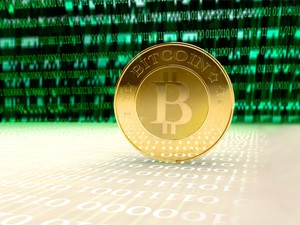
South African interest in Bitcoins as an alternative currency continues unabated, despite the Mt. Gox meltdown that saw thousands of Bitcoins go missing, the exchange closing down and facing liquidation.
Bitcoins are expected to take off locally as an alternative to the rand, disrupting traditional financial payment systems, which are seen as costly and outdated. Yet, widespread adoption of Bitcoin is not without its hindrances, such as the time a transaction takes to settle, hack attacks, and possible interference by government regulators.
In recent months, the Mt. Gox debacle hit the headlines after the exchange lost around 850 000 Bitcoins - worth $454 million at today's rates - towards the end of February, after its computer system was hacked. It later found 200 000 of those Bitcoins, but now faces liquidation.
Despite the scandal, Andrew van der Nest, CEO of the soon-to-be-established South African Bitcoin Foundation, notes Bitcoin is getting stronger and stronger in the local market. He says there does not seem to have been a noticeable impact on the uptake in use of Bitcoins post the Mt. Gox meltdown as "Bitcoin is bullet-proof".
Price drop
However, the lower price for Bitcoins - which has shed more than $150 in the past three months - has seen some people holding onto their Bitcoins, waiting for the next price spike, says Van der Nest.
According to CoinDesk, Bitcoins were trading at $647.23 in mid-February, which gave the virtual currency an $8 billion market capitalisation. The virtual currency is now changing hands at $486.60, the site notes.
Bitcoin was created as an alternative to physical currency in January 2009, by Satoshi Nakamoto, although there are doubts as to whether this is his real name. The virtual currency allows users to send payments within a decentralised, peer-to-peer network without the need for a clearing house. However, unlike banks, Bitcoin third-party accounts are not regulated.
Van der Nest notes trades on Bitx, a local secure wallet for the currency, have increased marginally since the Mt. Gox issue came to light towards the end of February. He says trade was around eight to 10 coins a day before the mess, and has now moved to between 12 and 14. "The lower price probably has opened the market to more people to move more volume, albeit at a lower price."
By design, the supply of Bitcoins cannot exceed 21 million and there are more than 12.8 million units currently in circulation, according to Bitcoincharts, a Web site that tracks activity across exchanges.
Hard lessons
However, says Van der Nest, some people have lost Bitcoins because of the Mt. Gox issue, but points out this is the same as a bank robbery, and does not mean the money is at fault, but rather human greed. "Those who have lost coins (been Goxed) may or may not get them back. This, however, will most probably not affect the local trade too much as Bitcoin still remains desirable within certain circles."
Van der Nest says the lesson is simply to not put Bitcoins online, but to use a QT wallet, and to make sure it is backed up and encrypted. "We need to take personal responsibility for our actions, and Bitcoin teaches us this."
Bitcoin enthusiast Haroun Kola notes new transparency, in the form of Blockchain, is coming in, which will make it hard for companies like Mt. Gox to continue not being transparent. However, he adds it is up to individual users to do their homework.
Share